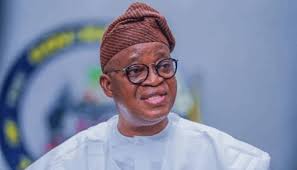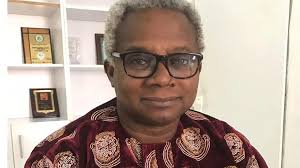NEWS
NARD Calls on FG to Implement Workers’ Welfare

From Christopher Tom, Uyo
The National Association of Resident Doctors (NARD) have expressed dissatisfaction on the infrastructural decay and negligence of workers’ by the federal and some state governments have combined to put the health sector in a precarious situation, rendering it unable to discharge the vital responsibility of securing human lives.
According to the association, these awful dispositions to core issues of welfare and emoluments have led to the flight of some professionals to seek greener pastures abroad. This was one of the major issues that dominated the weeklong 2025 Ordinary General Meeting (OGM), of the medical body, which ended recently in Uyo, the Akwa Ibom state capital.The communique was signed by the President General (PG), Dr. Osundara Tope; General Secretary, Dr. Odunbaku Oluwasola and Dr. Amobi Omoha, Public and Social Secretary, made a case for all matters of welfare, employment status and labour casualisation to be addressed within four months.NARD listed the grievance areas to include non-payment of the arrears of the 25/35 percent upwardly revised CONMESS, and other salary arrears and non-payment of special allowance.”The OGM demands full implementation of consequential adjustments to the 2019 and 2024 minimum wage on basic salaries and allowances, along with accrued arrears.”The OGM urges the Federal Government to expedite the payment of the 2025 MRTF.”The OGM calls on all Chief Medical Directors (CMDs) Medical Directors (MDs) and the Federal Government to complete payments of the 2023/2024 Accoutrement Allowance arrears”The OGM strongly condemns the continued and persistent casualisation and the consequent poor remuneration of doctors by the chief executives of tertiary hospitals.”The OGM expresses displeasure over the delay in addressing welfare issues in Obafemi Awolowo University Teaching Hospital Complex (OAUTHC), including the non-payment of outstanding March 2024 salaries, the 7–14 months of arrears still owed to Residents and Medical Officers, etc,” parts of the communique read. According to the medical professionals, only the immediate implementation of these set of demands as they affect their welfare would guarantee industrial harmony and total commitment to health care services, failure which they would meet to appraise and reconsider another line of action.They therefore commended President Bola Tinubu; Vice President Kashim Shettima and other subnational governors of Akwa Ibom, Abia, Ebony, Benue, Kwara, Delta, Enugu and others for their commitment to health sector interventions including the workers’ welfare.NEWS
Association Clashes with Benue Govt over Buruku Bridge Compensation
From Attah Ede, Makurdi
A heated dispute has erupted between the Tombo Development Association (TDA) and the Benue State Government over the N803 million compensation package for residents affected by the Buruku Bridge project.
The association, led by Dr.
Philip Akor Andiir Gur, has accused the government of breaching an agreement and attempting to shortchange them.According to reports, the TDA had given power of attorney to an environmentalist to assess the value of structures and farms to be destroyed for the bridge’s Right of Way, resulting in a N803 million compensation package.
However, the government had previously approved N900 million for the project, but now seems to be reneging on the deal.
The Director of Civil Engineering, Benue State Ministry of Works, Tivfa Wombo allegedly refused to hand over the funds to TDA, instead attempting to make payments directly to claimants with a revised schedule featuring lower values.
The association has served a pre-action notice, threatening legal action.
This controversy comes amid concerns about government transparency and accountability in infrastructure projects, particularly in conflict-prone areas like Benue State, where residents have faced displacement and food insecurity due to communal clashes and land disputes.
A community member, who gave his name simply as Iyorwase, accused the Benue State government of “Playing games with us.”
Mike Mnenge whose property was removed lamented that it has taken too long for him to receive his compensation.
“If I were paid, I would have built a new house for my family.
“It appears people in the government are not bothered with our plight, ” he lamented.
Efforts to hear from the Director of Engineering failed.
NEWS
Water Contracts: CAPPA Flays Lagos Secrecy, Violation of Procedural Framework
From Sylvia Udegbunam, Enugu
Corporate Accountability and Public Participation Africa (CAPPA) has condemned what it described as the opaqueness and significant procedural violations in the Lagos Water Corporation (LWC) ongoing procurement process for mini and micro water works under a Build-Finance-Operate-Transfer (BFOT) Public-Private Partnership (PPP) model.
According to reports, the LWC issued a tender in September last year, inviting proposals from private firms for the rehabilitation, upgrade, operation, and maintenance of multiple public water facilities across Lagos, including Lekki and Akilo Waterworks, Victoria Island Annex and Magodo Waterworks, Abesan and Alexander Waterworks, and Apapa Waterworks.
However, in a statement signed by the communication and media officerCAPPA Robert Egbe on Sunday, alleged that Lagos State’s pattern of deliberate non-disclosure surrounding its ill-advised plan to privatise public water supply through PPP arrangements not only contravenes mandatory transparency requirements under the state’s own laws but also erodes accountability in the governance of a vital public resource.
The organisation noted that, though the Lagos State PPP Disclosure Framework (2024) expressly mandates proactive public disclosure at every stage of PPP projects, the LWC has continued to conduct mini and micro waterworks procurement in secrecy.
According to the organisation, the Framework requires that feasibility studies, Requests for Proposals, bidder lists, evaluation criteria, contract summaries, fiscal risk assessments, and procurement milestones be published proactively on a public portal without waiting for Freedom of Information (FoI) requests. This obligation applies to all PPP projects, including ongoing procurements such as the mini and micro waterworks programme.
CAPPA stressed that these requirements are not discretionary but mandatory, yet, since the procurement commenced last year, none of the required disclosures has been made available to the public.
The statement observed that not only were full RFP details withheld from stakeholders and communities directly affected by the proposed concessions, but also, to date, the identities of bidders, evaluation criteria, procurement timelines, and award decisions remain undisclosed. No documentation of the process has been published on the Lagos PPP disclosure portal managed by the Office of Public-Private Partnerships (OPPP), the statutory body charged with ensuring transparency across all PPP projects.
CAPPA further noted that instead of compliance with the Framework’s requirement that information be made easily accessible through official state platforms, the only substantive public information about the procurement so far has emerged through a paywalled foreign industry publication, Global Water Intelligence, which reported that the LWC received 19 proposals by October 2025 and expected to conclude awards by March 2026 for a 10-year deal.
“In February 2026, CAPPA also learned through foreign news that Lagos State has initiated a parallel process to privatise wastewater infrastructure, beginning with wastewater treatment plants, including facilities in Lekki.” The statement described this situation as “deeply troubling and revealing.”
“It is disturbing,” CAPPA said, “that residents of Lagos and affected communities must rely on an expensive foreign subscription journal to learn about decisions concerning their own public water and sanitation systems, while their government and its water agency refuse to disclose the same information domestically.”
CAPPA added that the pattern reflects a broader contradiction in the PPP process.
“The Lagos State Government and certain international organisations actively supporting this approach and governance model continue to disregard disclosure and accountability standards with impunity in Nigeria. These are standards they would never contemplate breaching in their own jurisdictions.”
The organisation emphasised that the secrecy surrounding the mini and micro waterworks PPP is a substantive governance failure with direct implications for affordability, access, and long-term public control of water services.
“Experience across jurisdictions shows that PPP water arrangements frequently result in tariff escalation, reduced public oversight, and long-term fiscal risks, while failing to deliver sustained infrastructure investment. Just as we are already witnessing in Lagos, the ongoing push toward private participation in water and wastewater infrastructure is proceeding through shady processes that limit democratic scrutiny and weaken public accountability,” it added.
In light of these, CAPPA made the following demands:
“The Lagos State Government should immediately suspend the mini and micro waterworks PPP procurement until full compliance with statutory disclosure obligations is achieved, alongside the prompt publication of all outstanding procurement documents, including feasibility studies, RFP documentation, bidder identities and track records, and evaluation criteria.
“There should be an independent review and oversight to safeguard procedural integrity and public interest, as well as genuine public engagement and stakeholder consultation in all decisions concerning water governance and infrastructure management in Lagos State.
“Finally, the state must urgently correct the brazen and ongoing violations of its own transparency framework.
“Transparency obligations in water governance are statutory. The Lagos State Government cannot simultaneously claim adherence to PPP disclosure standards while conducting one of its most consequential water infrastructure procurements in secrecy. Compliance with the law is the minimum condition for legitimate governance of public resources,” CAPPA said.
The organisation also maintained that publicly financed and democratically governed water systems remain the most equitable and accountable model. It therefore called on the Lagos State Government to strengthen public institutions and essential infrastructure by allocating increased public funding, reinvesting sector revenues into system maintenance and expansion, and prioritising universal access over commercialisation.’
CAPPA concluded by urging all residents, civil society actors, labour unions, and concerned stakeholders to pay close attention to the state’s water governance processes and actively defend transparency, accountability and public interest in decisions affecting the lives of Lagosians.
NEWS
Ramadan, Lent: Abubakar Distributes Food to Muslims, Christians in Adamawa

From Yagana Ali, Yola
In a heartwarming display of generosity, renowned philanthropist and entrepreneur, Diaulhaq Abubakar, has extended a helping hand to over 12,000 Muslims and Christians in Adamawa State, providing them with food and cash aid during the sacred periods of Ramadan and Lent.
As the President of Blue Community Africa, a foundation he established to support the underprivileged, Abubakar has ensured that thousands of families are not left behind during these holy months.
His initiative, which began ten days ago, has already brought joy to countless households, with donations of rice, sugar, Maggi, and cash incentives.Abubakar’s commitment to empowering communities goes beyond mere charity.
Over the years, his foundation has equipped thousands with valuable life skills in areas such as agriculture, ICT, painting, and education, enabling them to break free from poverty and become productive members of society.“We’re not just providing temporary relief, we’re investing in human capital,” Abubakar emphasized. “Our goal is to nip poverty in the bud and foster a culture of productivity and self-sufficiency.”
The philanthropist’s vision is rooted in the understanding that progress is not just about white-collar jobs, but also about recognizing the value of blue-collar work. “In this age of hyper-technology, we must prioritize skills development and knowledge transfer,” he stressed.
To achieve this, Abubakar has forged partnerships with esteemed institutions like the Indian Institute of Technology Madras and Modibbo Adama University, leveraging their expertise to provide cutting-edge training and skills development programs.
As the people of Adamawa State continue to reap the benefits of Abubakar’s kindness, his message remains clear: “Empowerment is not just about giving; it’s about enabling individuals to become self-sufficient and contribute to the growth of their communities.”














